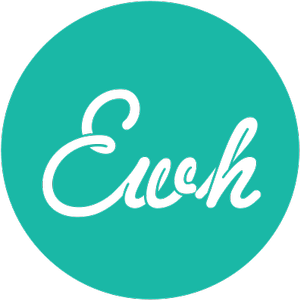
Gotta Getta Website!
You knew this was coming (and hopefully most of you have already done this): You must have your own website.
 Even better is to have a website for yourself as an author, and one for each of your book projects. The URL (web address) for your own site should ideally be your name with “.com” after it, but if you have a common name and/or that’s taken, go for .net or .biz. (.org is OK too, though that generally suggests a not-for-profit organization). For your book projects, you ideally want “title of yourbook.com” but if that is not available, go for a close facsimile (can you substitute “2” for “to” or “4” for “for?) OR something that suggests what the book is about. (I purchased RaisingBookworms.com for my book.)
Even better is to have a website for yourself as an author, and one for each of your book projects. The URL (web address) for your own site should ideally be your name with “.com” after it, but if you have a common name and/or that’s taken, go for .net or .biz. (.org is OK too, though that generally suggests a not-for-profit organization). For your book projects, you ideally want “title of yourbook.com” but if that is not available, go for a close facsimile (can you substitute “2” for “to” or “4” for “for?) OR something that suggests what the book is about. (I purchased RaisingBookworms.com for my book.)
You can hire a website designer to create your site for you, or you can do it yourself. Nowadays there are literally dozens of easy, do-it-yourself website options. I am not especially tech savvy, but I’ve done a bit of both. It’s a question of time. Whether you build it yourself or you hire someone to build it for you, you don’t have to spend a lot of money on it – and it doesn’t have to be very complicated. Nowadays, most people are using “open-source” (meaning FREE) website building programs. Among the most popular of these is WordPress (which I have just switched over to using.) But even Google has a do-it-yourself website option. My 13 year old son often helps me with website maintenance and could build a website very easily. Most kids know more about the web than we do these days, so finding a savvy teen to help can be a very cost-effective way to go.
 The basic information you need to have on your author site is this:
The basic information you need to have on your author site is this:
• Your bio (and be sure to keep it updated!)
• Detailed information about your book(s), including a photo of the cover, synopsis, 13-digit ISBN number, price, any awards, honors and reviews, and most especially a link to where to buy it (we’ll talk about affiliate programs in another post, where you can make commission off of anything sold by being referred from your site). If you have multiple books, you should also offer a printable list of all the titles/ISBN’s that a reader can easily download and take to a book store.
• A media kit, consisting of a downloadable photograph of yourself and any and all news items related to you, press releases about your books, or articles that relate to you or your book. (Articles written about you or your book show people that you have a platform and are of interest. Articles that relate to your subject matter advocate for you and demonstrate the relevance of your topic or theme.)
• A calendar that lets people know where you’ll be signing or speaking, when your next book will be out, and any other newsworthy information. Google Calendar is great – and it’s free. Once you have it, you can copy and paste the code into numerous websites and/or link to it in multiple places (like Facebook, or any other social networking sites). This way you only ever have to update one calendar, and it automatically updates it everywhere it’s posted.
• Your blog – More on this in a later post, but it is hugely helpful to have a blog… particularly if you have a niche.
• Recommended reading lists of other books in your genre that you admire. This gives you credibility as a writer and a member of the industry.
• Fun stuff, like games or downloads. For example, if you’re a picture book author, can you convert one of your illustrations into a black and white line drawing that kids can download and color in? Can you come up with a quiz related to your story? A printable bookmark? Are there some games you can come up with? For our book, The Great American Mousical, which is about mice putting on their own show in the basement of a Broadway theater, we created coloring pages from the illustrations as well as trivia quizzes and theater etiquette lessons.
• An opt-in invitation, or subscription button, where people can join your mailing list. This is worthy of an entire blog entry (which I will get to!) but for now, you want to be constantly thinking about ways to build your list, and this is a critical piece.
• News about what you’re working on and what’s coming up next.
• A ‘contact’ link, so your readers, booksellers, and members of the media can reach you easily via email.
One final point. Having a website means nothing if people can’t find it. This is where the search engines (like Google) come in. And having a really slick, lots of bells-and-whistles website doesn’t necessarily correlate with more traffic. In fact, the ones that make use of a lot of flash and embedded video technology often score at the lower end of the traffic scale. Once you have a website, you’ll need to familiarize yourself with basic search engine optimization (known as SEO in tech talk). More on that later too.
